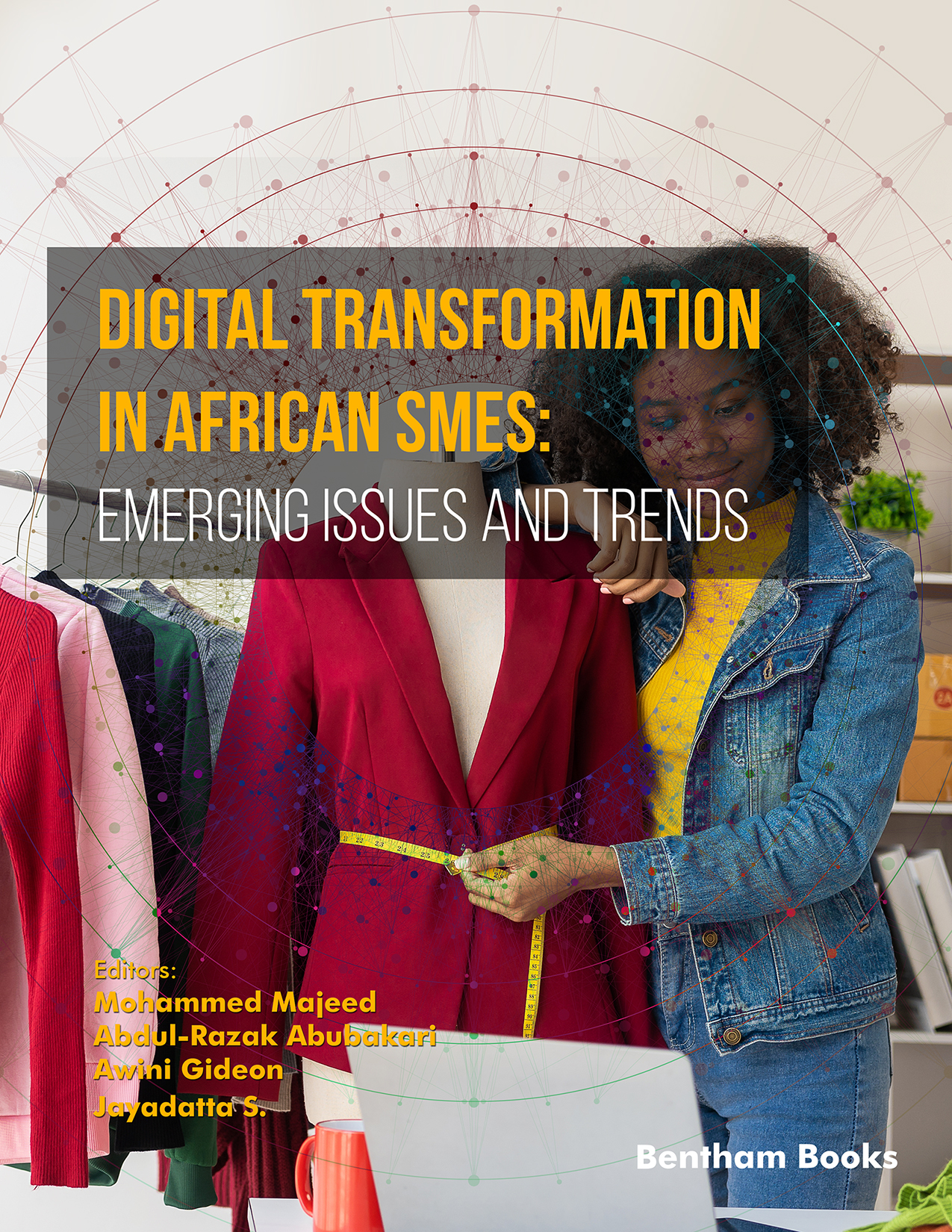Introduction
This 2 volume set aims to shed light on the various advantages and drawbacks of the same along with the opportunities and markets that are emerging because of digital transformation. This volume encompasses diverse perspectives on the digital landscape for Small and Medium Enterprises (SMEs). It delves into the use of digital tools like Big Data, IoT, AI, and ML in Chapter 1, followed by an exploration of factors influencing online shopping adoption in SMEs in Ghana (Chapter 2). Chapter 3 sheds light on the digital transformation of African SMEs, while Chapter 4 offers insights into the consequences of digitalization for SMEs in Sub-Saharan Africa. The subsequent chapters cover topics such as the impact of Big Data on SMEs' performance, digitization initiatives for African telecom service providers, the role of social media as a promotional tool for SMEs in Ghana, and the utilization of Artificial Intelligence by SMEs in Africa, addressing both benefits and challenges. The chapters provide information for educators at all levels to obtain a complete understanding of the technology-based environment that impacts teaching and commerce. It also serves as a resource for policymakers, entrepreneurs, researchers, and students interested in digital transformation in Africa.
Educators, policymakers, entrepreneurs, researchers, and students.

